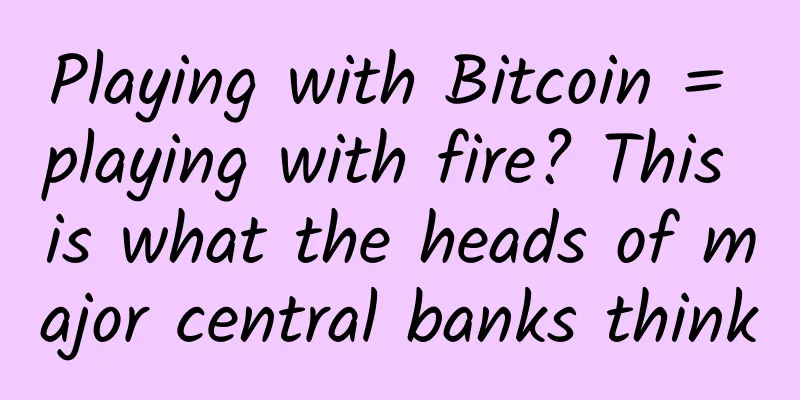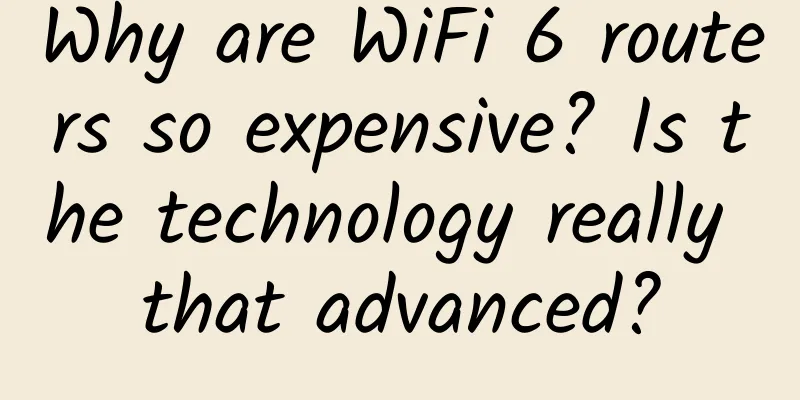Playing with Bitcoin = playing with fire? This is what the heads of major central banks think

|
As Bitcoin becomes more and more popular around the world, there are more and more doubts about the bubble bursting. Some people say that playing with Bitcoin is like playing with fire. So what do the central bank governors of various countries think of Bitcoin? In this regard, this article sorts out the comments of the governors of the Federal Reserve, the European Central Bank, the Bank of Canada, the Reserve Bank of Australia and the Bank of Japan on Bitcoin. The content is as follows: 1. Federal Reserve Federal Reserve Chair Janet Yellen was asked about Bitcoin at the last monetary policy meeting in December 2017. Yellen called digital currency a "highly speculative asset" that "does not constitute legal tender." She also added that it plays a "very small role" in the payment system and "is not a stable store of value." Yellen added: "The Federal Reserve does not really play any regulatory role in Bitcoin, except to ensure that the banking institutions we regulate properly manage their interactions with market participants and have the responsibility to monitor anti-money laundering and bank secrecy laws." As for the new Fed Chairman Powell, who will replace Yellen in early February 2018, he also commented on cryptocurrencies during his nomination hearing in late November 2017. He said that cryptocurrencies are just "not important at the moment" because the "bubble is not big enough." Powell said the risks posed by digital currencies to financial markets are minimal. “There are not enough of them to have an impact.”
2. European Central Bank ECB President Mario Draghi said in October 2017 that cryptocurrencies are not "mature" enough for central bank regulation. "With anything new, there are always great expectations and great uncertainty. At the moment, we think that in terms of Bitcoin and cryptocurrencies, we do not think that this thing is mature," Draghi said. He pointed out that tools like Bitcoin have both potential benefits and certain risks, and the two need to be carefully weighed. "One of the lessons of the financial crisis is that financial innovation, in this case financial and technological innovation, should be given enough attention to its potential risks," he said. 3. Bank of Canada Bank of Canada Governor Stephen Poloz also discussed the cryptocurrency craze in December 2017, calling the act of buying digital currencies gambling rather than investing. “The true value of cryptocurrencies is probably anyone’s guess — probably most people would say buying these things means buying risk, which makes it closer to gambling than investing,” Poloz said. “I would say that anyone who wants to buy a so-called cryptocurrency should read the fine print and make sure you know what you are doing.” Poloz believes that demand for digital currencies will grow in the future, adding that the Bank of Canada is watching this. “Central bank members are exploring a scenario where it would be appropriate for a central bank to issue its own digital currency for retail transactions,” he said. 4. Reserve Bank of Australia Reserve Bank of Australia Governor Philip Lowe also mentioned Bitcoin in a December 2017 speech, noting that digital currencies are not currently used for everyday payments and are unlikely to be accepted in the short term. Lowe said the reason was bitcoin’s high volatility, while also noting that it was limited in the number of payments it could process simultaneously due to high transaction and electricity costs, as well as regulatory issues. Moreover, when Bitcoin is viewed as a payment instrument, it seems “more likely to appeal to people who want to trade in the black market rather than for everyday transactions,” he added. 5. Bank of Japan In late 2017, Bank of Japan Governor Haruhiko Kuroda described Bitcoin price volatility as "abnormal." When asked if Bitcoin was a bubble, Kuroda responded: "It's not my place to say, but if you look at the chart, it's clear that the price surge is not normal. If you ask whether Bitcoin has the same function as currency - as a means of payment or settlement, the answer is no." |
<<: These 8 technologies may disrupt 2018
Recommend
How does CDN acceleration work? What are its benefits?
Many website operators believe in a principle tha...
If you understand long-distance relationships, you will understand how to configure switches.
We have explained the configuration of switches m...
What you need to know about Wi-Fi 7
As Wi-Fi 7 continues to make waves in the technol...
Actual combat: Can you believe it? Two VRRP hot standby gateways were installed in the operator's central computer room at the same time, but they fought with each other and caused the entire network to explode!
The case shared in this issue is related to VRRP ...
What network engineers should know about ARP
Dynamic ARP entry learning In most cases, devices...
Difficulties and solutions faced by ONOS dynamic expansion
1. ONOS consistency guarantee ONOS mainly include...
Remote holographic presentation is the development direction in the 5G era, and AR/VR hardware has entered a period of quantitative change
"Holographic telepresence is expected to bec...
In the era of intelligence, computing power is upgraded, and Huawei Cloud enables the intelligent transformation of the industry
[51CTO.com original article] Recently, Huawei hel...
DMIT: $36.9/year-1GB/10G SSD/450GB@500Mbps/Los Angeles CN2 GIA
DMIT has released the latest special package for ...
iWebFusion: Dedicated server starting at $57/month/5 data centers available, 10Gbps server starting at $149/month
iWebFusion (iWFHosting) has been shared many time...
5G new scenarios and technologies bring new security threats
Compared with the traditional mobile Internet sce...
Learn more! The principles behind Wi-Fi revealed!
Wi-Fi and 4G/5G cellular networks are the two mos...
∑co Time | Empowering the edge from the "core" to unlock the smart password of edge data
The cities we live in are becoming more and more ...
Easy to understand, this article will introduce you to the HTTP protocol?
1. What is http? Http protocol is Hypertext trans...
How 5G frequencies affect range and speed
Experts say that while 5G technology is a huge im...









